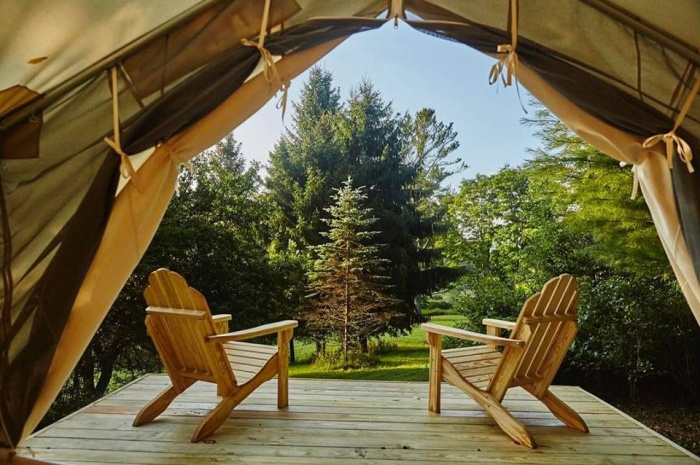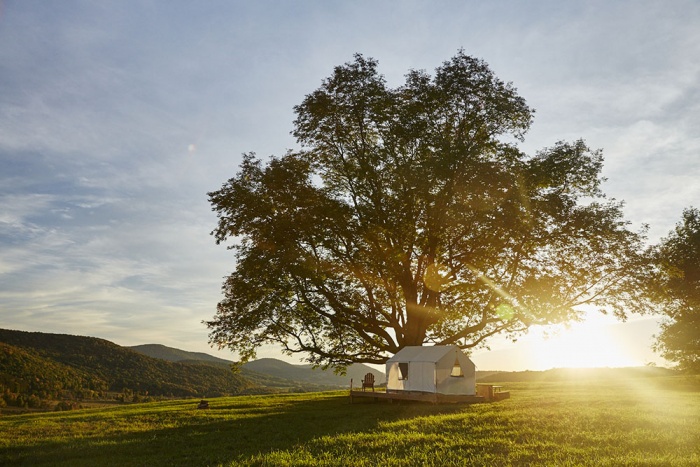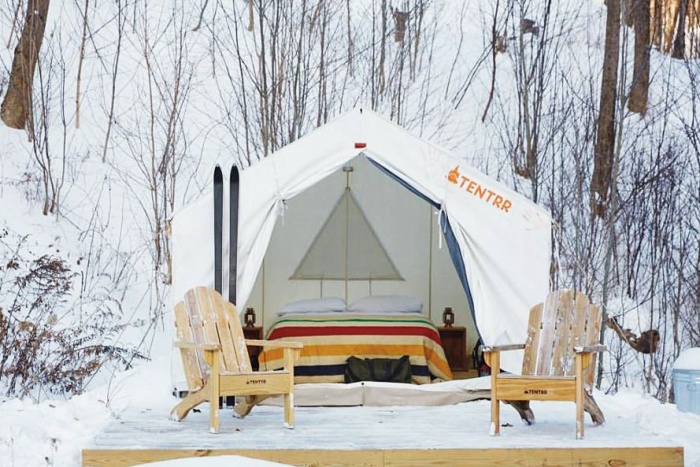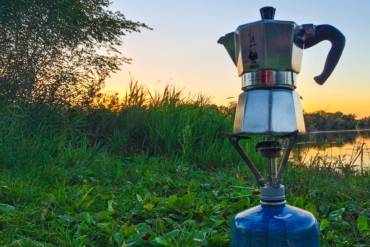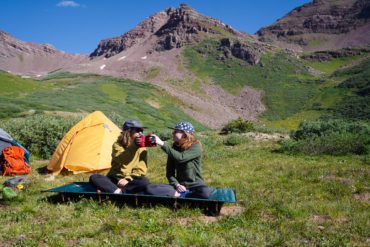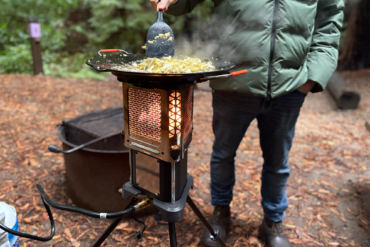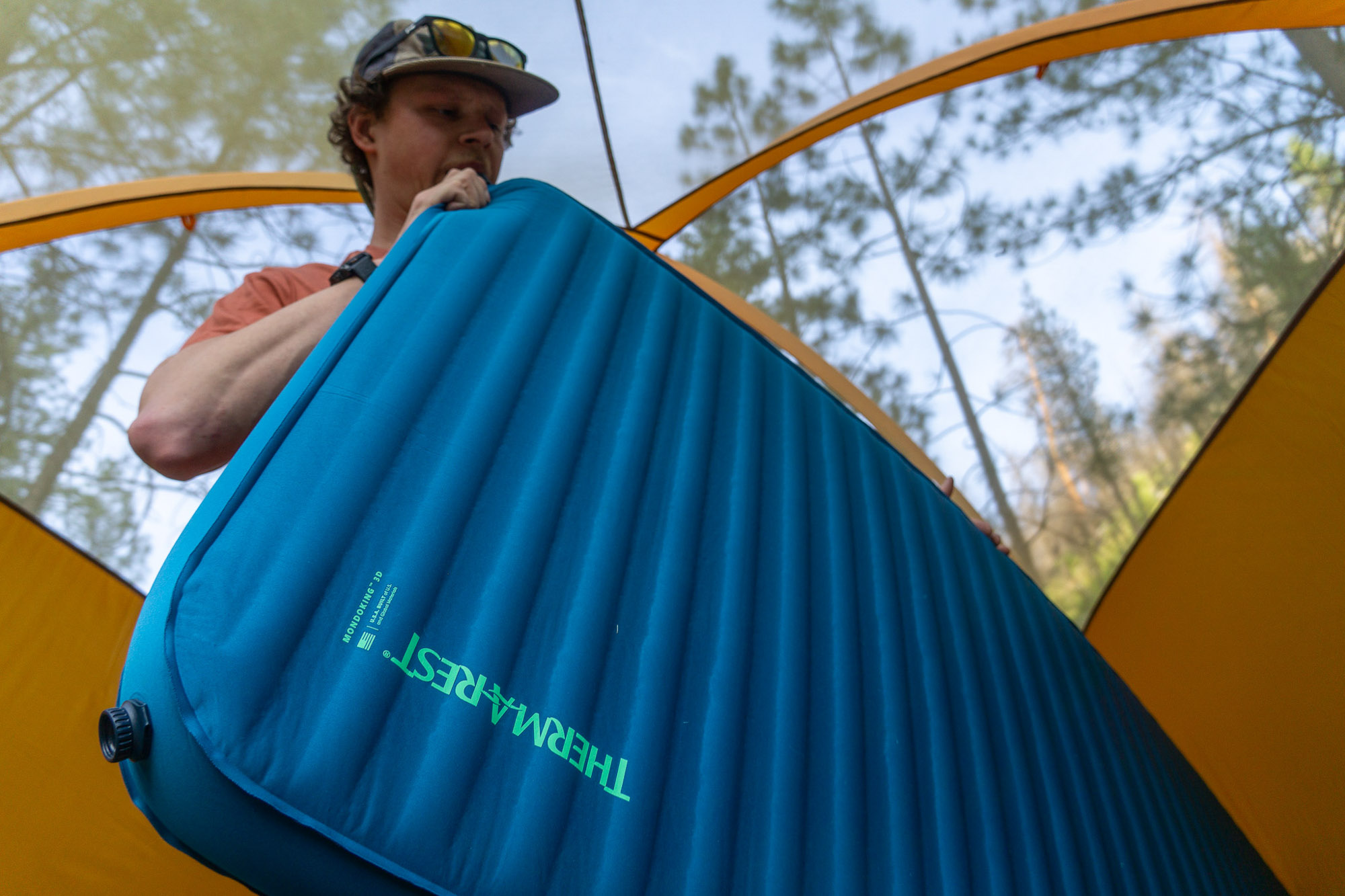An all-inclusive, Airbnb-style camping service puts campers on large swaths of private land. It will expand across the U.S. this year.
Whether you’re looking for a quick getaway nearby, or a campsite that’s so secluded it’s listed as “zombie proof,” Tentrr has spots available. And they’re big.
An online booking service, Tentrr launched last year with 35 “by-owner” campsite listings. Now with 100 sites available, Tentrr will grow to 250 properties along the east coast and into the Pacific Northwest.
Tentrr Camping on the Rise
Tentrr recruits private landowners with plenty of acreage who are willing to host up to 14 campers on their property. Then, vacationers select their preferred site based on their desired activities and scenery.
Land features, levels of seclusion, and activities like mountain biking, rafting, fishing, and trail running help narrow the search.
Tentrr is building sites now to expand beyond its current footprint in the Catskills, Adirondacks, and Hudson Valley in New York. By July, the company expects to have sites reaching from Pennsylvania to Maine.
All-Inclusive Campsites
The campsites have two draws: They come with virtually everything necessary for a vacation outdoors, and they are massively larger than traditional camping plots.
The smallest campsite on Tentrr is 10 acres. And the largest spans around 200.
Property owners become “campkeepers” who tend the land, minimize hazards, and handle booking inquiries.
“It’s an Airbnb model with a few exceptions,” said Baxter Townsend, a representative for Tentrr. “Every site has the same basic setup with the option for the campkeeper to add “extras” if they want to make additional money.”
The campkeeper can add these “extra” amenities at their discretion. Every Tentrr site has a canvas tent on a platform and a large family-size dome tent. Sites also include queen-size cot and mattress, wood stove, sleeping pads, Adirondack chairs, sun shower, picnic table, water container, fire pit, grill, camp chairs, cast iron frying pan, grill tongs, dry storage, garbage can, and camp toilet.
Campkeepers provide things like firewood, bedding, guided fly-fishing tours, recreational gear, and more.
Tentrr’s “camp scouts” evaluate prospective listings for acreage, shade, and access to outdoor activities like water features, hiking trails, and views.
Each site runs from $75 up to $165. Unless otherwise noted, campers should bring bedding, plates, cups, utensils, towels, matches, flashlights, toiletries, and food.

